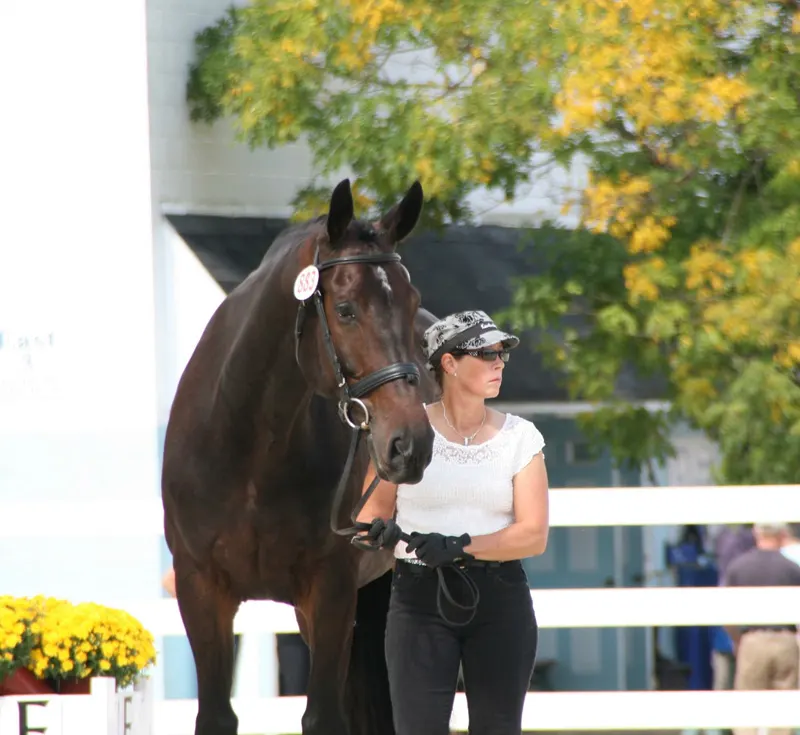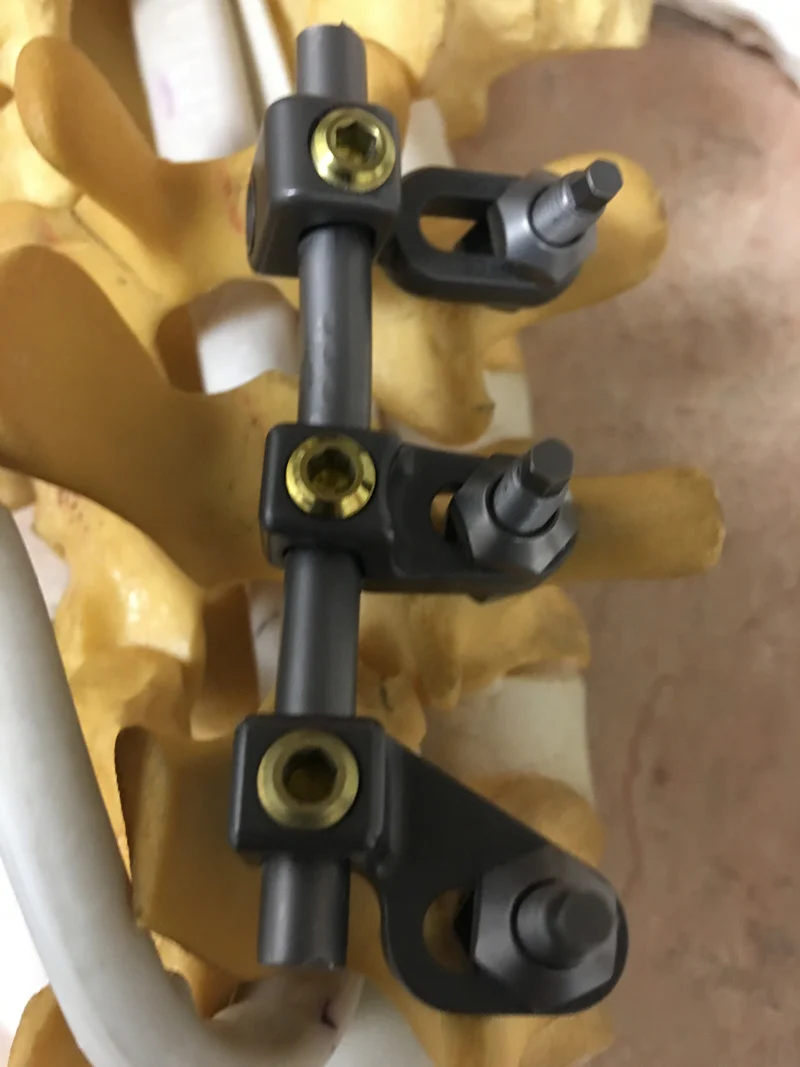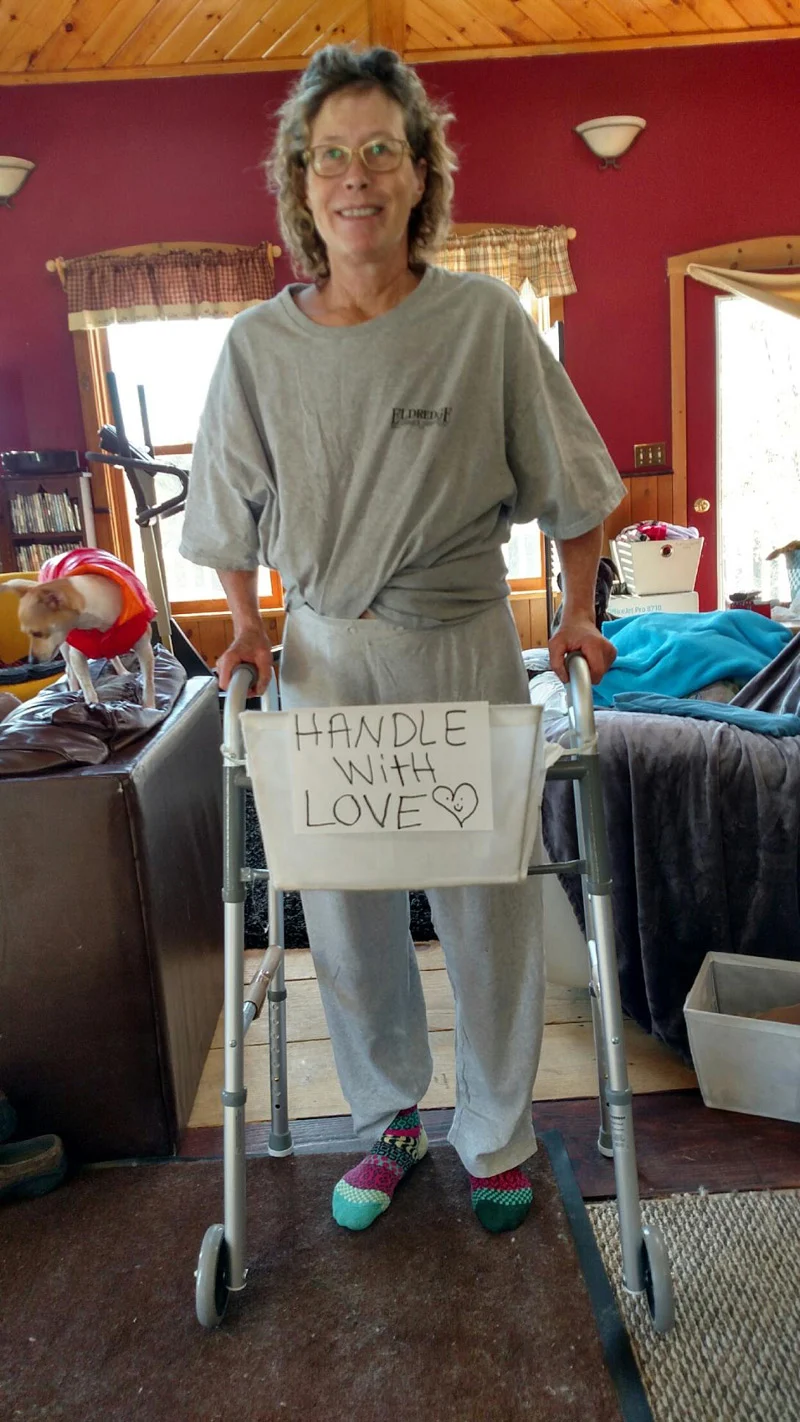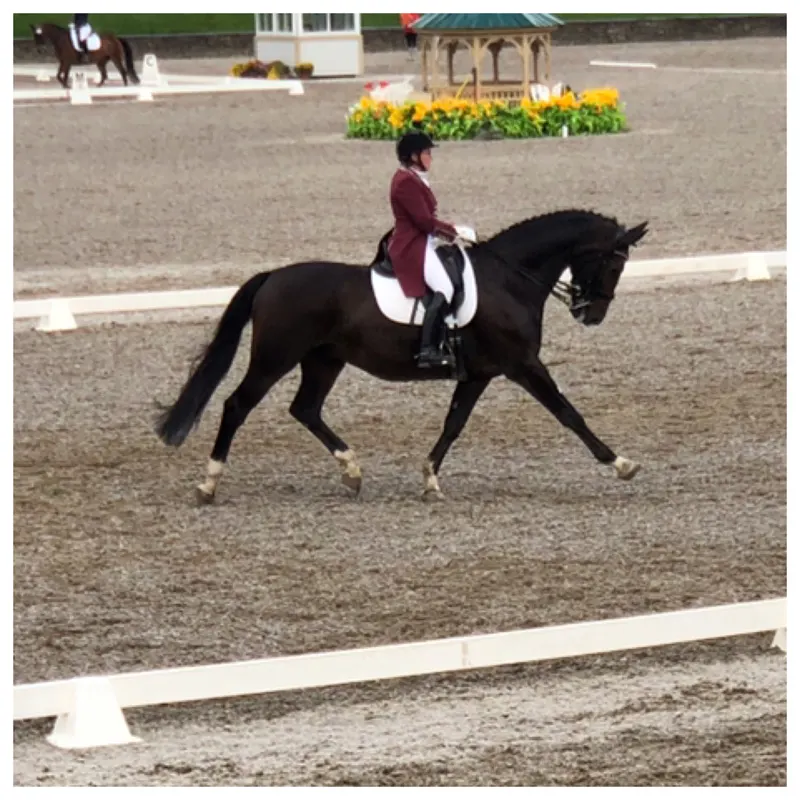Just 1½ years ago simple actions like getting out of bed and getting dressed were major challenges for Jennifer Wilson-Horr. She was recovering from a complex spinal surgery, and despite being a lifelong equestrian, the thought of getting back on a horse seemed too distant to even contemplate.
“I was so accustomed to being able to do things on my own,” said Wilson-Horr, who is the head trainer at her Cedar Hill Farm in Springvale, Maine. “To suddenly be so limited in what I could do was really humbling.”
But Wilson-Horr had to believe she’d return to the tack eventually. “Everything I have chosen to do takes focus and drive,” she said. “Getting back on my feet was just another challenge to overcome.”
Competing in both eventing and dressage since childhood, Wilson-Horr had made several FEI dressage mounts over the years, but she longed for a competitive Grand Prix horse.
In 2004, Wilson-Horr found an exciting 3-year-old prospect named Uni’ka at Iron Spring Farm in Coatesville, Pennsylvania. “After I sat on him I called my husband, Jay [Horr],” Wilson-Horr recalled. “I said to him, ‘Listen. He is really big. A little too young. A little too much money. But he is everything I am looking for!’ ”
“Jeffrey” already stood well over 17 hands, and he eventually matured to a towering 18 hands. “The first time I sat on him I thought I might be crazy!” Wilson-Horr said with a laugh. “His steering was pretty sporadic, and he had only recently been backed. But he answered my questions, and when I put a little pressure on him he took it, and he took it perfectly. I knew he was the one.”

Before a broken back turned her life upside down, Jennifer Wilson-Horr competed Uni’ka at Dressage At Devon and had ambitions to make an international team. All photos courtesy of Jennifer Wilson-Horr.
His good looks and international quality gaits made up for his stature and inexperience. “I was really looking for my international partner, the horse to take me to the top of the sport,” Wilson-Horr said. “I was sure I had found it in him.”
The pair made their second level debut in 2007, and it seemed like Wilson-Horr’s plans were on schedule. Jeffrey enjoyed a fantastic season, capping it off with the GAIG/USDF Region 8 open second level championship.
Their rise up the levels was interrupted the following year when Wilson-Horr underwent major shoulder surgery. “That was years of hard work and repeat injuries catching up with me,” she said. “I was pretty certain that I would get that issue taken care of, and then the path would be clear.”
And for a few years, it seemed like she might be right. Between 2009 and 2012 Wilson-Horr experienced career highs. The pair won the GAIG/USDF Region 8 Intermediaire I open championship in 2011 and started going down centerline in CDIs at prestigious venues like Dressage At Devon (Pennsylvania) and in Wellington, Florida. In 2012 they made their Grand Prix debut. “It was all coming together,” said Wilson-Horr. “He was proving himself to be the team horse I knew he could be.”
However, at the same time Wilson-Horr noticed some chronic back tightness was becoming more pronounced. “I was beginning to have trouble sitting the trot, applying a good half-halt,” she said. “Things that previously were like second nature to me were suddenly difficult.”
During the 2013 season, Wilson-Horr’s back issue escalated, so she consulted her doctor and received shocking news.
Wilson-Horr remembers her doctor saying, “Jennifer, this is serious. We really need to schedule you for surgery immediately. You are walking around, riding horses, all with a broken back! How did you not know this?”
The chronic pain had escalated over time. “When your pain level is essentially a 20, you don’t really notice subtle nuances within that elevated pain scale,” Wilson-Horr explained. “I just remember being on a horse one day and knowing that I had no business being up there. I had no right leg, basically no feeling in it at all.”
ADVERTISEMENT
The actual medical diagnosis was mind boggling: Ankylosing spondylitis, spinal stenosis, mild spina bifida, spondylolisthesis, degenerative disc and joint disease, and fractured vertebrae and facets. Surgery would be risky, with a chance of paralysis.
Wilson-Horr sought out a second opinion, which brought her to Dr. Frank Pedlow, who was the chief of the orthopedic spine service at the Massachusetts General Hospital at the time. His confidence that he could ease her pain through surgery was comforting. But scheduling the procedure took far longer and was more complicated than Wilson-Horr imagined.
“The testing and imaging just for my back took months,” she said. “Dealing with the insurance company was frustrating and time consuming. And just when we had reached a point to schedule surgery, a suspicious spot was found on my pancreas. And in the middle of all this, my aunt and grandfather were both experiencing serious health issues. It was a lot to handle.”
Fortunately, the pancreatic concern turned out to be a cyst, but the setback from that took the better part of a year. “And through all this I was trying to work, trying to keep my business running. My clients were great, and my husband is amazing, but it was years of stress,” Wilson-Horr said.
In early 2017 Wilson-Horr underwent surgery at Mass General. The procedure involved two major surgical days, where they sliced her open on both sides and rebuilt a good part of her spine. In medical terms it was overwhelming and literally pages long. The procedure involved arthrodesis, laminectomy, facetectomy and foraminotomy. Or, in non-medical terms: joint fusion, removal of the backs of several vertebrae, decompression of the spinal nerve root, and a procedure to enlarge the passageway where a spinal nerve exits the spinal canal. The surgical team implanted an allograft and an intervertebral biomechanical device.

Jennifer Wilson-Horr now sports a bionic back thanks to some impressive hardware and a talented surgeon.
After a weeklong hospital stay, Wilson-Horr returned home. Her activities were strictly limited, and for the first five months, healing was the No. 1 priority.
“I was completely homebound,” she said. “As someone who was used to being in the barn daily, this was life altering. But as each day went by, I could feel my pain levels reducing. By the time I was really able to begin physical therapy, I had the lowest pain level that I had felt in years.”
She essentially had to relearn how to be mobile. “The simple act of learning how to get out of bed was huge,” Wilson-Horr said. “Or the PT challenge of picking up a sock between my toes, basically impossible. So many things that a person takes for granted were huge challenges for me.”
But she always had returning to the saddle as her ultimate goal. Her surgeon urged caution. “I can’t recommend that you run out and ride” were his words. “But I know you are going to. So my advice is to be extremely careful and limit your potential risks.”
Wilson-Horr had discussed the risks with her husband and family. They all agreed that she should, if possible, return to riding. “It is my life,” explained Wilson-Horr. “Yes, I could get back to teaching, coaching, maybe even judging. However, the thought of never riding again was not really something I entertained. With the support of my family, I knew I at least had to try.”
While all this was going on, Jeffrey was encountering challenges of his own. He’d been diagnosed with EPM just after Wilson-Horr learned she’d need surgery. He recovered but soon hit another roadblock.
“He was on a paid lease at the time to another great pro rider,” said Wilson-Horr. “I got the call that he was having a major colic and was on his way to [the Cummings School of Veterinary Medicine at Tufts University (Massachusetts)]. They basically said he wasn’t going to make it, and that I should consider putting him down. With the support of my own vet I made the choice to attempt surgery, because I really felt that he was strong enough to overcome and hopefully recover.”
Wilson-Horr dedicated the summer and fall of 2017 to non-horse based recovery. “I had an endless pool installed in our home,” she said, “and it has been absolutely instrumental in my recovery and strength building.”
She also returned to the dressage ring as an instructor. “I remember the first time I taught a lesson post-surgery,” said Wilson-Horr. “I think I made it through about 30 minutes, and I was DONE! You just don’t realize how physical the job is until you try to do it completely out of shape.”
ADVERTISEMENT
But it was only a matter of time before she was back on a horse. “I didn’t last long,” Wilson-Horr said, sheepishly. “My first ride back was basically a pony ride. I got on. Walked around the arena twice. Got off and realized it might take a while to get my legs back!”
She built up her riding stamina on the quietest horses. “It was different,” Wilson-Horr recalled. “My brain remembered how to do everything, but I discovered that I had to find a different way to get my body to cooperate.”
Follow-up imaging of her spine showed excellent progress. “I was feeling better than I had in years, and my team of surgeons were so pleased!” said Wilson-Horr. “I was taking zero pain meds, other than the occasional Advil. This was such an incredible change from what I was used to and such a relief.”

Before Jennifer Wilson-Horr could think about riding again after major spinal surgery, she had to relearn much more basic things like how to get out of bed and get dressed.
Late in 2017 Wilson-Horr made the decision to get back in Jeffrey’s tack. “It was great to be back on him,” she said. “I loved riding the other horses, but when you have a longtime bond with a particular horse, it is hard to recreate that on anyone else.”
So she went one step further and signed up for a show two weeks later, “Hey, why not?” Wilson-Horr said with a laugh. “You only live once, and the horse knows his job so well. I knew I could just walk to the show arena, point him in the right direction, and that he would help me out.”
They ended up winning the Prix St. Georges class, punching their ticket to the GAIG/USDF Region 8 Championships the following September.
The lead-up to the regional championships wasn’t entirely smooth sailing. “I did a few shows during the summer, some more successfully than others,” Wilson-Horr said. “I really had to relearn how to train for a show in a way that was healthy for me. I had to figure out how much warm-up to do in order to be able to ride a quiet test. And sometimes, my body simply would not cooperate.”
But as the season progressed, Wilson-Horr regained her confidence and some perspective. “I have always been a perfectionist,” she said, “and I am learning to step away from that. My goal is to be as good as I can on the day and to give my horse the ride he deserves. I am so fortunate to have him, and I never want to lose sight of that!”
At the regional championships, in Saugerties, New York, the years of struggles, setbacks and pain fell away. Despite a major spook, the pair placed eighth in a competitive Intermediare I championship class. Their score earned them an invitation to the U.S. Dressage Finals (Kentucky).

After two days of back surgery and months off to recover, Jennifer Wilson-Horr returned to the saddle of her beloved Uni’ka and qualified for the U.S. Dressage Finals in the open Intermediaire I.
“I have never been to nationals, and I am so looking forward to it!” said Wilson-Horr. “I really look at this as a once-in-a-lifetime opportunity, and I am going to soak it all in. Relish every minute. Try to ride my very best, but to know that I will come away feeling positive no matter what.”
She credits the support system of her close family and clients for getting her there. “The way that people have come together for me over the past few years is incredible,” said Wilson-Horr. “I would not be where I am today without their amazing support.”
And while qualifying for and competing at the national championships is a dream come true, Wilson-Horr’s focus is on the big picture now. “I have gained a new perspective after being through so much,” she said. “We should all appreciate our horses every day. And appreciate our lives and abilities to be mobile. My life view now is that you have to take one day at a time and one half-halt at a time. Live each day to the fullest. You never know what day might be your last day, so now I try to enjoy every ride like it is the final one. And while I hope our test at nationals is not our curtain call, I am going to appreciate every moment of the ride as though it could be.”
The Chronicle will be onsite at the U.S. Dressage Finals to bring you beautiful photos and stories from throughout the weekend.















